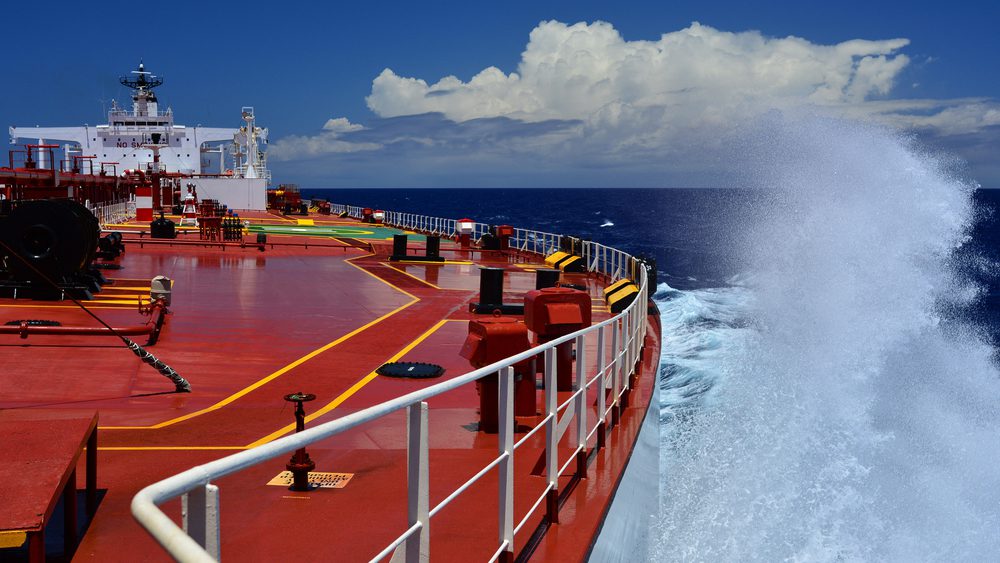Photo: By G-Valeriy / Shutterstock
 By Jonathan Saul LONDON, July 12 (Reuters) – Shipping companies sailing through the Middle East Gulf are being urged to avoid having private armed security guards onboard as the risk of escalation in the region rises, industry associations say.
By Jonathan Saul LONDON, July 12 (Reuters) – Shipping companies sailing through the Middle East Gulf are being urged to avoid having private armed security guards onboard as the risk of escalation in the region rises, industry associations say.
Relations between Iran and the West have become increasingly strained after Britain seized an Iranian tanker in Gibraltar last week and London said its warship HMS Montrose had to fend off Iranian vessels seeking to block a British-owned tanker from passing through the Strait of Hormuz.
The most recent incidents followed a spate of attacks on tankers since May around the Strait of Hormuz and the Gulf of Oman, which the United States has blamed on Iran and are denied by Tehran.
An advisory issued in recent days by leading shipping associations warned against using private armed guards in the critical areas.
“The use of force against threats recently encountered in the Gulf of Oman carries significant risk and has the potential to escalate security situations to the detriment of the safety of ship and crew,” the advisory said.
“The use of unarmed maritime advisors to assist with onboard security and watch-keeping is sensible,” it said, noting relevant legal guidelines.
A rise in Somali piracy, which was at its height a decade ago, prompted shipping companies to deploy private armed security teams in the Gulf of Aden.
Guy Platten, secretary general of the International Chamber of Shipping, said there were stringent restrictions on the use of armed guards in the Gulf, whereas there was approval by flag states for their deployment off Somalia.
“The message is do not use private armed guards in these waters – it is not advised,” he told Reuters on Friday.
While it is still possible for ships to sail through the Strait of Hormuz with private armed guards on board, few ports in the Gulf allow ships carrying weapons to enter.
“The legal implications for insurers and vessel owners are widespread. Breaches of rules bring about significant financial penalties, adverse reputational issues and in some cases custodial sentences,” said Jonathan Moss, head of transport and shipping with law firm DWF.
“The navies will be aware that additionally recruited armed security personnel may lead to the possible escalation of violence.”
Mark Gray, co-founder of British company MNG Maritime, which runs a UK regulated floating armoury some 26 nautical miles from the coast of the United Arab Emirates, said UK security companies that were licenced to carry and move firearms in the region were restricted to counter-piracy activity.
“Any British security company that uses those firearms … to counter the forces of a state like Iran would be in breach of that licence and therefore breaking the law,” he said.
“Armed guards are not the solution – all you need are more eyes and ears looking at all sides of the ship especially the rear when passing through those waters.” (Editing by Kirsten Donovan)
(c) Copyright Thomson Reuters 2019.

 Join The Club
Join The Club











